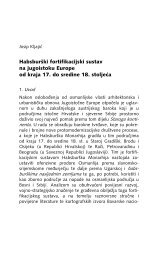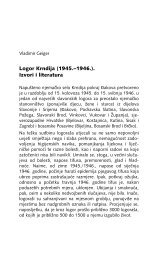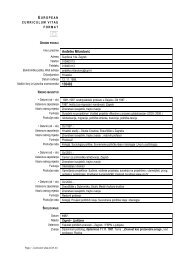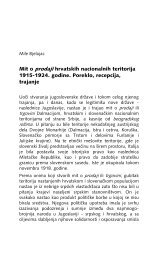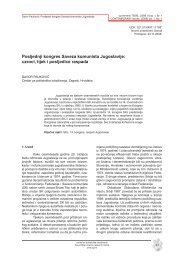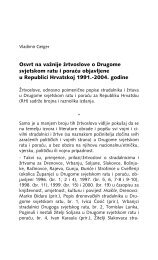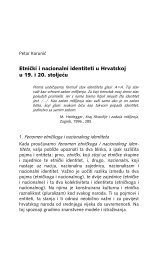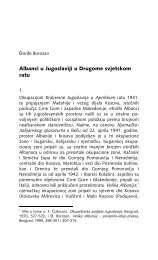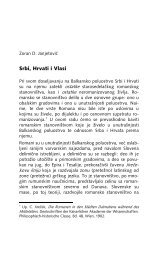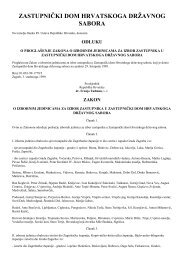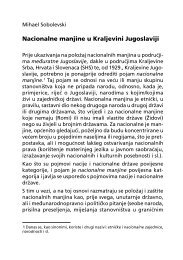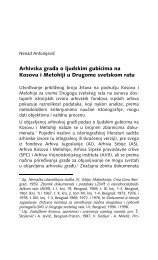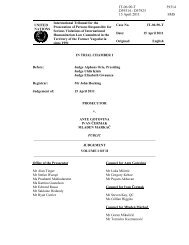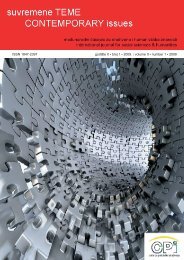Igor Graovac - Centar za politološka istraživanja
Igor Graovac - Centar za politološka istraživanja
Igor Graovac - Centar za politološka istraživanja
Create successful ePaper yourself
Turn your PDF publications into a flip-book with our unique Google optimized e-Paper software.
66<br />
Prošlost, povijest i društvo<br />
ments become part of the so-called historical memory of a society.<br />
There is mostly a wide discrepancy between the collective memory of a<br />
group and "the way it really was". All the more reason to differentiate<br />
between the images of the past and history (history as a result of<br />
methodical research).<br />
History as a science also uses the filters, which result from the<br />
researchers' questions and the profession's methods. Still, historians are<br />
in a difficult and conflicting situation. As members of a nation they are<br />
contaminated by its cultural arrangements, and at the same time, they<br />
research what they have created themselves. The problem of the distance<br />
between researchers and the researched arises here; historians,<br />
as the elite among interpreters, have frequently sinned in this respect.<br />
The historians' guild is divided into two groups: the ones, who are<br />
primarily committed to the society, i.e. the nation - its myths and<br />
expectations, and the others, who are primarily committed to science.<br />
Unlike the primeval nation (i.e. the prototype of the modern closed<br />
society), an open society is considered to be the product of change.<br />
From that viewpoint, the nation is neither constant in time nor in<br />
composition, and the past also presents itself in a completely different<br />
way. There is neither the re-birth of a nation, nor the historical rights.<br />
There are also no centuries-long rivalries among nations. This is why<br />
the national movements, which resort to a cyclic understanding of<br />
time, the nation as a primeval community and historical rights have a<br />
different understanding of "justice" and "legitimacy" than the national<br />
movements, which are committed to a linear understanding of time<br />
and the concept of an open society.<br />
The history of South East Europe should be re-written all over again,<br />
because people and societies only come up in that history if they are<br />
considered to be part of a nation, or if they are made equal with it. In<br />
the process of separation, however, historians have played a conflictinstigating<br />
role over and over again, which can be best seen on the<br />
example of former Yugoslavia, especially on the examples of the<br />
ahistorical perceptions of the past and time, which have as little in<br />
common with history as science has with myth.<br />
What is still to be done? Before all, one has to give up myths and<br />
homogeneity and open oneself to pluralism and multiculturalism,<br />
which requires abolishing the images of enemies. And "mastering one's<br />
own past" was and is an indispensable part of this process of dealing



